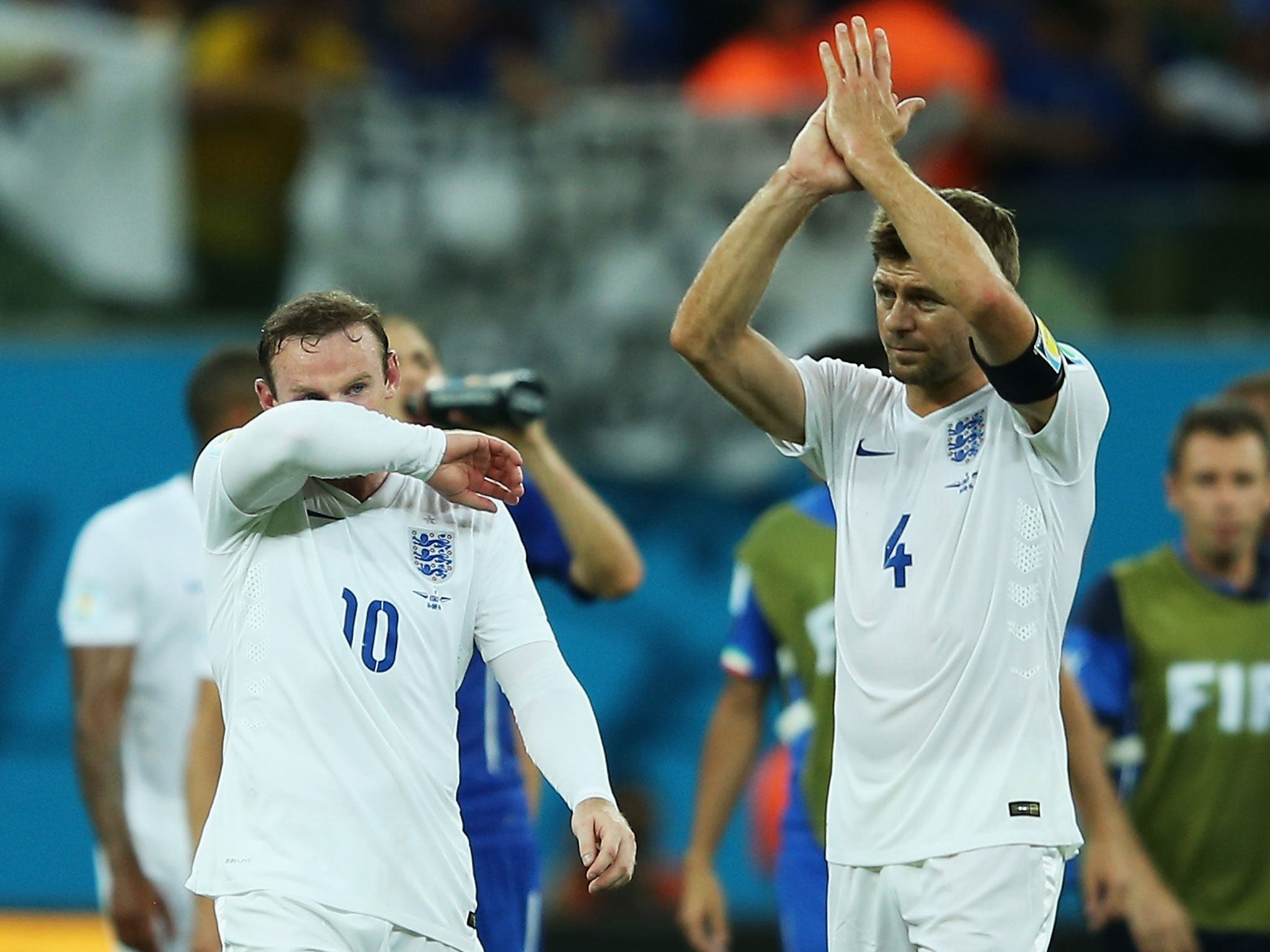World Cup 2014: England and others pay price for jungle games in Manaus
Seven teams lost their next match after playing in the draining heat of the Amazon

Your support helps us to tell the story
From reproductive rights to climate change to Big Tech, The Independent is on the ground when the story is developing. Whether it's investigating the financials of Elon Musk's pro-Trump PAC or producing our latest documentary, 'The A Word', which shines a light on the American women fighting for reproductive rights, we know how important it is to parse out the facts from the messaging.
At such a critical moment in US history, we need reporters on the ground. Your donation allows us to keep sending journalists to speak to both sides of the story.
The Independent is trusted by Americans across the entire political spectrum. And unlike many other quality news outlets, we choose not to lock Americans out of our reporting and analysis with paywalls. We believe quality journalism should be available to everyone, paid for by those who can afford it.
Your support makes all the difference.There is a rogue factor in this World Cup that most people watching on television around the globe will not appreciate. It is the climate, which, at this time of year in Brazil, varies enormously from the cool of the south to the steaming humidity of the north.
We know this, we’ve been told, and read about it. But most of us do not really appreciate it because most are not there.
It was in 1931, a year after the first World Cup, that Aldous Huxley published Brave New World in which the characters went to the 'feelies' - movies at which the audience felt, as well as heard and saw, the on-screen experience.
Eighty-three years later we have Dolby Digital, surround sound, 3D and widescreen TV. Yet genuinely replicating the experience of being within what you see and hear remains, despite what advertisements claim, fantasy. Which is why, unless you have been watching the matches in a sauna, or a night-club without air-conditioning, television consumers of the World Cup cannot appreciate what it has really been like to play in some of the tournament's most climatically demanding venues.
There is a clue, however, in the results. So far eight teams have played in Manaus in the heart of the Amazon jungle, or in the similarly steamy interior city of Cuiaba (which bills itself as 'the southern gateway to the Amazon'), then played their next game against a team that had played somewhere else. Seven of these teams, including both England and Italy, lost their next game.
Italy looked dead on their feet against Costa Rica while it would not be unsurprising if the lapse of concentration by Gary Cahill and Phil Jagielka that allowed Luis Suarez to score Uruguay's winner was related to mental and physical exhaustion. So far every team to play in Manaus has lost their next match, which does not bode well for Switzerland and Honduras, who play there on Wednesday night, if one of them progresses.
More broadly, Andrea Pirlo complained that 'there are two World Cups. One in the north, one in the south.' Italy have played their group games in Manaus, Recife and Natal, average June/July temperatures of 27C, 27C and 26C respectively, the latter two matches kicking off at 1pm. Some players said they hallucinated in the later stages of their match with England in Manaus while official statistics said in the second half in Recife Costa Rica ran 12.7km more than Italy.
Indeed, ten teams have played in the 'north' (Fortaleza, Natal, Recife, Manaus, Salvador and, given the humidity, Cuiaba), then played an opponent whose previous game was in the ‘south’. Greece, with a last-minute penalty, were the first to win, three having drawn and six losing. Greece, whose game is based on holding shape, sitting deep, and occasionally counter-attacking, may well be the team best-equipped to cope with the heat. It is also telling that substitutes, who are obviously fresher than match starters, have scored 23 goals, already matching the tournament record.
The effects of the heat and humidity matter because margins have been very fine in this tournament. In the first two rounds of group games 72 per cent of matches were either even, or had only one goal in it, with five minutes to go. Given how high-scoring this tournament is it is startling how many games remained in the balance in the closing stages. In nine matches of the 40 played to date the result has been changed by a goal in the last ten minutes, including England v Uruguay.
That is an indication of how much standards have evened up across the globe, but also of how significant any advantage can thus be. As well as preparing in Portugal and Miami England's jungle preparations including having each players' sweat analysed at Loughborough University so they could have individually-tailored electrolyte recovery drinks. But several players still suffered cramp against Italy. Maybe they should have followed Germany's lead and based themselves in Bahia though Seth Burkett, the Englishman who played for an Amazonian-based team in 2009-10, said in his book The Boy in Brazil it took him two months to adapt to playing there.
The draw, it seems, has been all-important. Argentina, who could reach the final without playing anywhere north of Brasilia, really struck lucky. The teams who began in the Amazon – England, Italy, Russia and South Korea – drew the short straw. The throat-slitting gesture made by Football Association chairman Greg Dyke when England were drawn to open their campaign in Manaus was prescient.
Join our commenting forum
Join thought-provoking conversations, follow other Independent readers and see their replies
0Comments